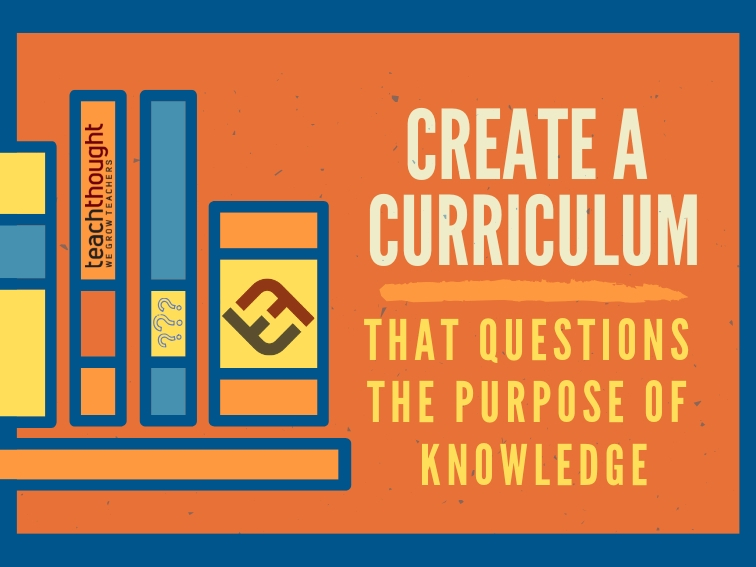

by Terry Heick
In our recent post, Curious fascination of education for uniformityThe reader James Foss left a useful comment that had an interesting concept in him – the “goal of knowledge”.
“Is it the standards that dictate program programs or evaluation practices that dictate pedagogy?
It is possible that the current standardized model is a new and improved model compared to disparate standards that educators have historically developed in their respective communities, at least, because it concerns the rigor and the ability to compare the progress of each school (of a certain orientation). However, it is important to underline Mr. Heick’s point that uniform standards do not reach the degree of location that dynamic communities are enclosed to favor.
The flavor of “local” found in our program can be improved by the composition of ideas that shape our communities, the personal educational values of teachers and administrators who make the study program and by the dialogue of the way in which pedagogy can be developed by questioning nature, sources and Objectives of knowledge.
Recently, the reform of the Curriculum reform is dominated by the big children of the playground. The commentary of Mr. Wiggins on the lack of imagination could be cropped in the question of which controls the reform. There is evidence that individuals, including teachers and school administration, can exercise great imagination when they are autonomous. »»
Well said.
An idea that deserves to be tattooed on fronts or spray painting on the walls of our school corridors is the need to define – above all – the purpose of education. What are we trying to do and why? Without having a clear goal, there is never any progress, only movement. Progress is relative because it moves to something. We cannot know “how we do” as long as we do not know where we are going and what we lose by not already there.
And the simple study program – and the mastery of said program – is not an answer.
Study program as a construction
Let us be contained that a study program is that which must be studied – a set of learning experiences planned to promote control of knowledge and skills.
This knowledge and skills are carefully delimited in academic standards. In this way, standards are like ingredients; The program prepared using these ingredients is the product of the packaging of these ingredients (in the form of units, lessons and activities).
(This is also useful to help see how students think standards – No one wants to eat ingredients; students do not want to eat flour and salt and chocolate on cooking, but they will eat brownies.)
The study program is an institutional construction – something mentioned by people. We have learned for millennia without study program; It is not necessary to learn, but it is necessary once learning becomes systematic – once it goes from a personal act to a planned product.
It does not make a study program bad. The objective of the program is to provide a kind of gathering point for everything else. It provides mutual language to understand and communicate knowledge, and works as a kind of shared understanding. This is why we are all here, In the same way, a crowd during a concert shares music – and the expectation of music – in common.
Study program as a strategy
The curriculum is therefore a learning strategy – it is a tool used to promote learning. And as a learning strategy (and frankly, a relic of pedagogy), has a lot to do, when it is misunderstood, make it terribly ineffective.
The pieces of any “program” given vary from subjects to the ways of thinking these subjects of skills. Standards seek to take something intangible (for example, literacy) and to make it tangible (standards). Thus, if the curriculum is contained in studying and learning (which is then distributed by teaching and learning strategies, the success of which is then measured by evaluation), which gives us an objective. A function.
And from a point of view of the function, this is the primitive cause of schooling. The content curricula and its planned outing is knowledge.
Program jumping to knowledge
But what about this knowledge? Is knowledge a certainty if the program is controlled? And what is the purpose of knowledge? What should we do with it? A
And not a wave Webut This 9 year old boy and that 14 year old girl and that Small group of high school students in this rural district? What should they TO DO?
The program decides for us What knowledgeBut don’t answer Why knowledge. This type of discourse is generally reserved for epistemology and philosophy, but that is the problem. These are obvious concerns on the front that we jump directly in a self-justice, We know what’s best For everyone. It is a question of concern for each educator, school and district.
What do we do with what we know?
These are questions both of fundamental practice and human expression – park park, and the needs of those who study it.
Having the program jump to the knowledge can therefore be a question of design – the search for a program that does not seek to produce students with knowledge, but rather those who reject it until it is packed in a way that fits into their pockets, and on their phones, and in their own imagination of crackling.
Until they know where it comes from and where it could take them from.
Curriculum which questions the purpose of knowledge; Assignment of adapted image Flickr User Tulanepublicrelations



